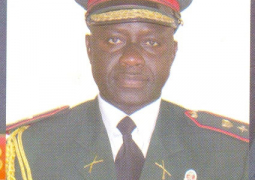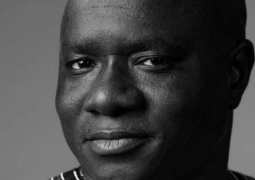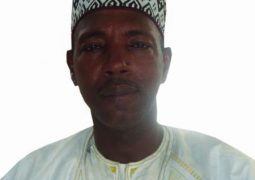Stakeholders in the micro finance institutions from the five member countries of WAIFEM (The Gambia, Ghana, Liberia, Nigeria and Sierra Leone) yesterday commence a four-day regional course on microfinance operations and regulations.
Organised by the Wet African Institute for Financial and Economic Management (WAIFEM), the course currently under way at the Paradise Suites Hotel in Kololi, was designed to among others enhance participants’ understanding of the features, operations and contributions of microfinance institutions to the financial intermediation process.
The course comes in the light of the fact that while the gap between the supply and demand for microfinance services is huge, one of the major constraints is the lack of capacity in operating sustainable institutions.
In a statement delivered on his behalf by Basiru Njai, first Deputy Governor of the Central Bank of The Gambia, Amadou Colley, Governor of the Central Bank of the Gambia, said poverty is arguably the most challenging economic problem, and it is estimated that over two billion of the world’s population are living in conditions of extreme poverty, of which rural poverty accounts for nearly 63 percent of world-wide poverty, reaching 90 percent in some countries.
‘Ironically, we live in a time of greater material abundance, of greater availability and transferability of capital and technology around the world more than humanity has ever had,’ Colley stated.
According to the Central Bank Governor, there is an important link between economic growth and poverty reduction, and studies have confirmed that sustained economic growth of 7-8 percent per annum, that is inclusive, is the most effective and efficient means of reducing poverty.
Noting that faster and sustained economic growth requires inter alia access to financial services including microfinance, Governor Colley said efforts targeted at ensuring the poor have access to finance started with the introduction of micro-credit in the early 1970s in Bangladesh, India and Latin America.
He highlighted some of the challenges facing the microfinance sector, among them institutional weaknesses in areas such as planning, governance, poor management, limited access to long-term financing; limited diversification of products; weak networks; and costs and risks associated with setting up microfinance in rural areas.
He noted that as the custodian of the financial system, the Central Bank of the Gambia continues to perform its role as supervisor, regulator and promoter of microfinance in The Gambia.
To unleash the potentials of microfinance, Colley noted that the CBG is committed to the maintenance of a benign macroeconomic environment, and that there is a strong link between price stability and financial stability.
‘Price instability and volatility in financial markets which it engenders are probably the most serious of the risks that financial institutions have to cope with,’ he said, adding that almost in every case where there has been serious threat of systematic financial disturbance, it can be traced to macroeconomic policy failures of one kind or another.
Speaking on behalf of the Director General of WAIFEM, Professor Akpan H. Ekpo, the Director of Financial Management at WAIFEM, Ousman Sowe, said WAIFEM was established in July 1996 by central banks of The Gambia, Ghana, Liberia, Nigeria and Sierra Leone principally to build sustainable capacity for improved macroeconomic and financial management in the constituent countries.
“In order to ensure highest quality in its programmes, WAIFEM has extensive technical partnerships with reputable institutions including the International Monetary Fund, the World Bank, African Development Bank, Commonwealth Secretariat, Debt Relief International, and the World Trade Organization, among others,’ he stated.
According to him, the objective of the course is to enhance participants understanding of the features, operations and contributions of microfinance institutions to the financial intermediation process.
He noted that one of the key goals of the millennium development programme is poverty reduction, and microfinance has been viewed as a veritable instrument or a major process that will effectively address the issue of poverty by making available to the majority of the poor greater opportunity for sustainable progress and development.
He said while the gap between the supply and demand for microfinance services is huge, one of the major constraints is the lack of capacity in operating sustainable institutions.
Ogbonnaya Agu, programme manager of WAIFEM, delivered the vote of thanks.




